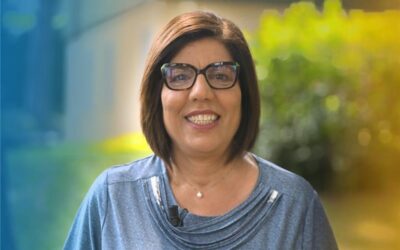It is the 8th century B.C. and the people of Israel are at a critical time. God, called YHWH in the Hebrew tradition, needs a prophet to speak in his name to all the people, to announce the coming liberation by Emmanuel, “God is with us.” And so God appears, in all his majesty, to Isaiah, who is praying in the temple.
There, before the grandeur of God, the prophet, deeply aware of his own nothingness and sinfulness, cries out, “I am a man of unclean lips!” (Is 6:5). But an angel, holding a burning coal taken from the altar with a pair of tongs, purifies his lips. To God’s question: “Whom shall I send? Who will go for us?” (Is 6:8), Isaiah, now completely renewed by this heavenly action, can now respond: “Here am I; send me!”
Is the prophet’s offer of himself to God and act of presumption? No, because it was God who took the initiative. Isaiah is responding to a call.
«Here I am, send me!»
God called the prophet, and down through the history of salvation God continues to call men and women and entrust them with a particular mission. He looks on them with love: no one is insignificant in God’s eyes. One might think at times that his or her life is useless or meaningless. It is fully revived and redeemed, however, by God’s call addressed precisely to him and to her, as it is to me and to you: God invites us to take part in a plan of love for humanity and for all creation.
God turns to me and to you just as he did to Isaiah, to Mary, and to Peter, and each time he asks: “Whom shall I send?” God has confidence in us and invites us to be his collaborators. By saying “yes,” by repeating the “yes” of Isaiah, of Mary, and of a multitude of Christians who came before us, we can put ourselves at his disposal.
By saying “yes” to what God wants – to what he helps me understand day by day – my every action, even those seemingly insignificant, acquires value, it becomes important, because it contributes to the coming of the Kingdom of God, to the accomplishment of universal brotherhood.
In our case, too, it is not presumptuous to answer “yes.” The initiative is always God’s. God is always the first to love. Our “yes” is only a response of love to his love. He loved us first. Yes, thanks to his call, I am ready to fulfill his every desire, to work for him, and to say over and over again:
«Here I am, send me!»
We might not feel up to the task entrusted to us. We might feel that we have neither the ability nor the strength to carry it out.
If Isaiah had stopped to ponder his unworthiness or his own limitations, he would have kept on saying: “I am a man of unclean lips!” It seemed impossible to Mary that she could become the Mother of God when she received such an extraordinary announcement. When the apostle Peter felt called by Jesus, he spontaneously exclaimed: “Depart from me, Lord, for I am a sinful man” (Lk 5:8).
When God calls he also gives us the capability to fulfill the mission entrusted to us, ”for nothing will be impossible for God” (Lk 1:37). Isaiah’s lips are purified so that he can speak in the name of God. Mary is filled by the presence of the Holy Spirit and by “the power of the Most High” (Lk 1:35). Peter is sustained in his mission to be “rock” by the prayer of Jesus himself (see Lk 22:32).
Each “yes” we say will be followed by the grace we need to carry out whatever task is required by the will of God.
«Here I am, send me!»
In our own small way we have experienced the truth of this. In 1943, at the beginning of this experience of ours, we had understood that God loved us immensely, and we felt urged to communicate this great news to everyone: “God loves you immensely, God loves us immensely.”
Some months later, on the feast of Christ the King, we were deeply struck by the words of the liturgy for that day: “Only ask it of me, and I will make your inheritance the nations, your possession the ends of the earth” (Ps 2:8). We saw this as an appeal for unity and universal brotherhood.
As we knelt around the altar, prompted perhaps by the Holy Spirit, we said to Jesus: “You know how unity can be achieved. Here we are. If you want, use us.” It was our: “Here am I; send me!” We were still a small group then, seven or eight girls, but we had already given our answer to Jesus.
Now, sixty years later, this spirit has reached 182 nations through the life of thousands of people of the Movement. It is an experience that confirms the great things God can do if he finds people ready to respond to his invitation.
Chiara Lubich




0 Comments